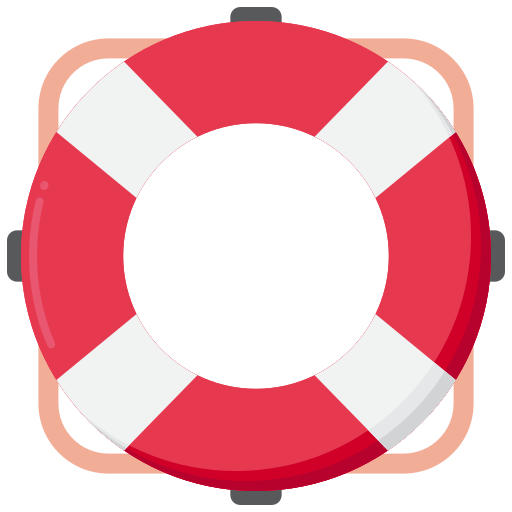Eco-Friendly Boating: Best Practices and Tips
Boating can be a serene escape into nature, but it also poses significant threats to aquatic ecosystems if not approached responsibly. Eco-friendly boating practices ensure that this enjoyable activity does not compromise the health of our waterways. Adopting green habits on the water is crucial for the preservation of marine life and the protection of natural habitats. Below, we explore comprehensive tips and best practices that can help you reduce your environmental footprint while still enjoying your time on the water.
Understanding the Environmental Impact
Boating contributes to several environmental challenges, such as pollution, habitat disruption, and the introduction of invasive species. Motorized boats emit harmful pollutants that can degrade air quality and contribute to water pollution, while waste generated from boats can negatively impact marine ecosystems. Understanding these impacts is the first step toward making informed decisions that minimize harm.
Choosing Sustainable Equipment
For eco-conscious boaters, choosing the right equipment is essential. Here are some considerations:
- Electric and Hybrid Boats: Opting for electric or hybrid engines can dramatically reduce emissions. These engines produce less noise and air pollution, making your boating experience quieter and cleaner.
- Fuel Type: If you use a gas engine, consider fuels with lower emissions and seek out forms that are less harmful to the environment, such as ethanol blends.
- Lightweight Materials: Boats constructed from lightweight materials require less energy to move, thus consuming less fuel.
Waste Management on Board
Proper waste management is crucial for maintaining clean waters. Here are effective strategies:
- Waste Disposal: Always bring biodegradable or eco-friendly cleaning products, and ensure that any waste generated aboard is disposed of responsibly at designated facilities onshore.
- Holding Tanks: Use holding tanks for sewage and ensure they are pumped out at approved stations. Never discharge sewage directly into the water.
- Recycle: Equip your boat with recycling containers to manage recyclables like plastic, aluminum, and paper.
Conserving Energy and Resources
Energy conservation contributes to a reduced carbon footprint. Implement the following practices:
- LED Lighting: Replace traditional boat lighting with energy-efficient LED lights that consume less power and have a longer lifespan.
- Solar Panels: Consider installing solar panels to power onboard electronics, reducing reliance on fossil fuels.
- Monitor Speed: Operating your boat at a steady, moderate speed reduces fuel consumption and lessens water turbulence, which can disrupt marine life.
Protecting Marine Life
Being mindful of marine ecosystems is essential. Here are key strategies:
- Avoiding Sensitive Areas: Steer clear of breeding grounds and habitats for wildlife, such as wetlands and shallow waters where young aquatic species reside.
- Observe from a Distance: When encountering marine animals, maintain a respectful distance to avoid disturbing their natural behaviors.
- Anchor Responsibly: Use mooring buoys instead of anchoring in sensitive areas to prevent damage to coral reefs and underwater vegetation.
Preventing Invasive Species
Invasive species can drastically alter ecosystems. Boaters can help prevent their spread:
- Cleansing Gear: Before and after fishing or boating, clean all equipment and gear to remove potential hitchhikers (e.g., plants, mud, or little critters).
- Stay Informed: Educate yourself about local invasive species to better recognize and report them.
- Do Not Release Bait: Avoid releasing unused bait into the water, which can introduce harmful species.
Supporting Eco-Friendly Practices and Initiatives
Participating in community efforts can amplify the positive impact of eco-friendly boating. Here are some suggestions:
- Volunteer Events: Join local community clean-up events to help keep waterways clean.
- Advocacy: Support policies and initiatives that promote conservation and protection of aquatic ecosystems.
- Education: Share your knowledge about eco-friendly boating practices with fellow boaters to foster a culture of sustainability.
Table of Eco-Friendly Boating Practices
| Practice | Benefit |
|---|---|
| Choose Electric/Hybrid Boats | Reduced emissions and noise pollution |
| Implement Waste Management Systems | Minimized pollution and improved waste disposal |
| Use LED Lights | Lower energy consumption |
| Avoid Sensitive Areas | Protection of marine habitats |
| Participate in Community Clean-ups | Enhanced local waterway health |
Conclusion
Adopting eco-friendly boating practices is not only beneficial for the environment but also enhances the overall experience of being on the water. By being proactive about sustainability, boaters can help preserve the beauty and integrity of aquatic ecosystems for future generations. Implement these practices and tips to become a steward of boating and ensure that our waterways remain vibrant and healthy.
